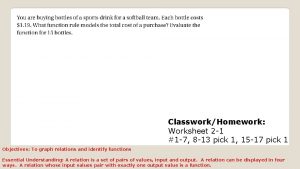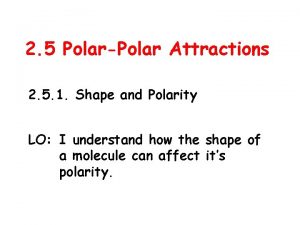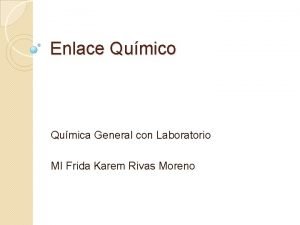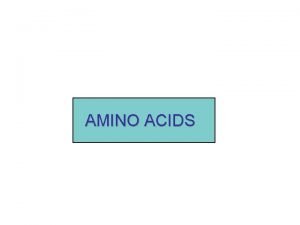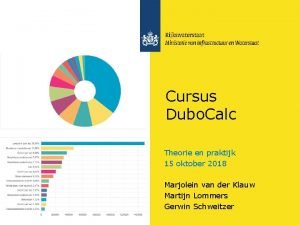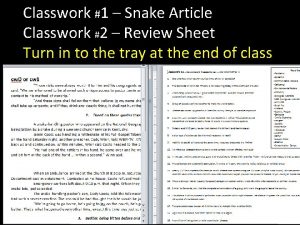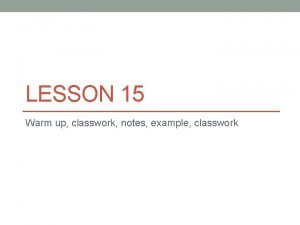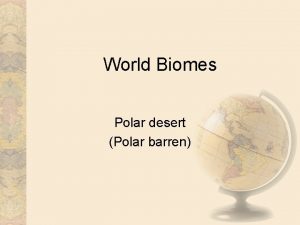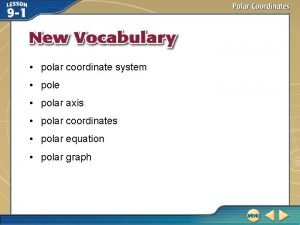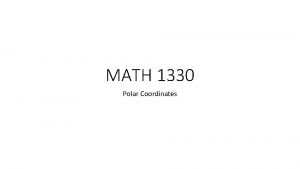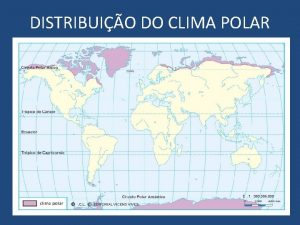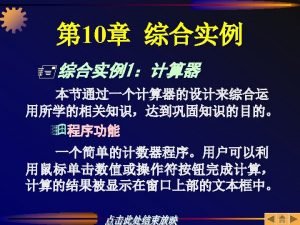Polar Calc Review Sherin Stanley Sophia Versola Classwork
















- Slides: 16

Polar- Calc Review Sherin Stanley, Sophia Versola

Classwork: Multiple Choice 1 -8 → Kahoot FRQ #9 → Independent Work Homework: FRQs #10 & #11

Card 69: Common Polar Graphs/Equations Rose Curves: ● ● Cos OR sin, NOT cos divided by sin SYMMETRY: Cos- symmetrical to the xaxis Sin- symmetrical to the yaxis r=a(cos/sin)(n�� ) Period- �� if n is odd, 2�� if n is even If n is odd, then n represents the number of petals If n is even, then n multiplied by 2 represents the number of petals

Card 69 (cont. ) Limacons: period=2�� Aka dimpled limacon Convex Limacon Same general formula a/b>2

Card 69 (cont. ) Circles and Lemniscates: ● Period=�� ● The distance between the pole and the tip is the a value in your lemniscate ● Circle formulas● Lemniscate formulas-

Card 70: Polar Conversion Formulas

Card 71: Power reducing formulas

Card 72: Finding Polar Area If f is continuous and non-negative on the interval [a, b], where 0 < b - a < 2 �� , then the area of the region bounded by the graph of r=f(�� ) between radial lines �� =a and �� =b is: 1. Figure out the formula of the polar graph given (sometimes the formula itself will be given to you) 2. Find bounds (in-depth step by step on the next slide) 3. Plug into the Area formula and integrate Sometimes it’s helpful to find the area of half of a region and then multiplying it by 2. To find the area enclosed by two polar curves, sub in the outer curve squared minus the inner curve squared into r.

Card 72 (cont. ) Determining Radial Lines: 1. Sketch the region of the area you’re trying to solve for 2. Draw a radial line from the pole to the boundary curve 3. Find the interval of values in which the radial line sweeps out the region R *Set R equal to zero in order to find one or both of your radial lines. There’s usually multiple ways to solve polar area problems, so don’t feel discouraged when you don’t see your answer as an answer choice.

Polar Area Example What is equal to the area of the region inside the polar curve r=2 cos�� and outside the polar curve r=cos�� ?

Card 73: Arc Length *This will not be on the AP Exam, but you still need to know it for the BC test* Arc Length Formula → s= Steps for Solving: 1) Establish your interval [a, b] and your polar equation r(�� ) 2) Derive r(�� ) 3) Substitute your given polar equation r and r’ into the Arc Length formula above 4) Using the interval that is given, evaluate the integral to find the Arc Length (simple substitution, usually calc active)

Card 74: ∫teps to finding dy/dx 1) Establish the given �� and polar function r(�� ) 2) Using the equations y=rsin�� and x=rcos�� , substitute your given polar function into r to find your x and y equations 3) Find dx/d�� and dy/d�� 4) dy/dx=(dy/d�� )/(dx/d�� ) 5) Substitute your given value for �� into the dy/dx equation to find your slope

Card 75: Tangent Lines of Polar Equations Steps: 1) Establish your r(�� ), your r value, and your �� value 2) In order to write a linear function for the tangent line, use the equations x=rcos�� and y=rsin�� , and your r and �� values to find x and y 3) Substitute your x and y into the tangent line equation, leaving dy/dx to be found 4) Find dy/dx 5) Sub dy/dx into the tangent line equation

Card 76: Interpreting Motion Rules to remember: dr/d�� > 0 → the particle is moving away from the origin/pole; the radius is getting larger dr/d�� < 0 → the particle is moving toward the origin/pole; the radius is getting smaller dr/d�� = 0 → the particle’s position might be at a maximum or minimum distance from the origin/pole

Interpreting Motion Example A particle moving with a nonzero velocity along the polar curve given by r=42 cos�� has position (x(t), y(t)) at time t, with �� =0 when t=0. This particle moves along the curve so that dr/dt=dr/d��. Find the value of dr/dt at �� =5π/3 and interpret your answer in terms of the motion of the particle.

Time for a Kahoot!
 Dimpled limacon
Dimpled limacon Bruce sherin
Bruce sherin Classwork/homework linear functions answer key
Classwork/homework linear functions answer key Welcome to google classroom
Welcome to google classroom Geometric figures lesson 1-1
Geometric figures lesson 1-1 Http://www.explorelearning.com
Http://www.explorelearning.com Words their way schedule
Words their way schedule Polar polar attractions
Polar polar attractions Polar vs nonpolar bond
Polar vs nonpolar bond What are polar and nonpolar dielectrics
What are polar and nonpolar dielectrics Como saber si un elemento es polar o apolar
Como saber si un elemento es polar o apolar Enlace qumico
Enlace qumico Why is lysine basic
Why is lysine basic Dubo calc
Dubo calc Symfony iol calculator
Symfony iol calculator Epics calc record
Epics calc record Thermocalc examples
Thermocalc examples


